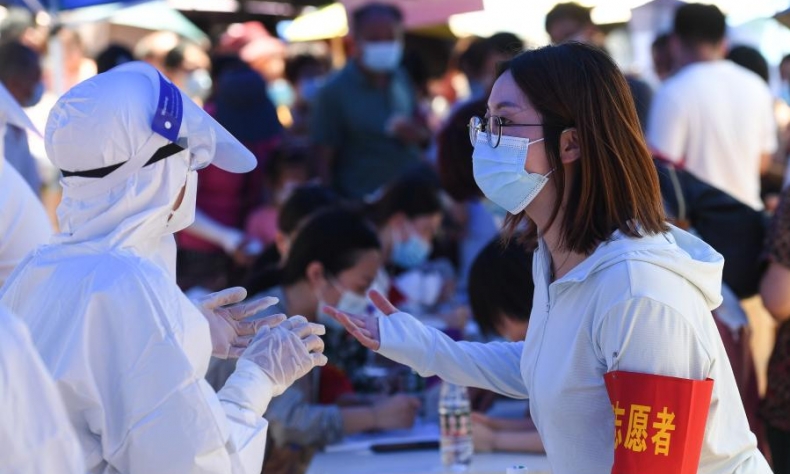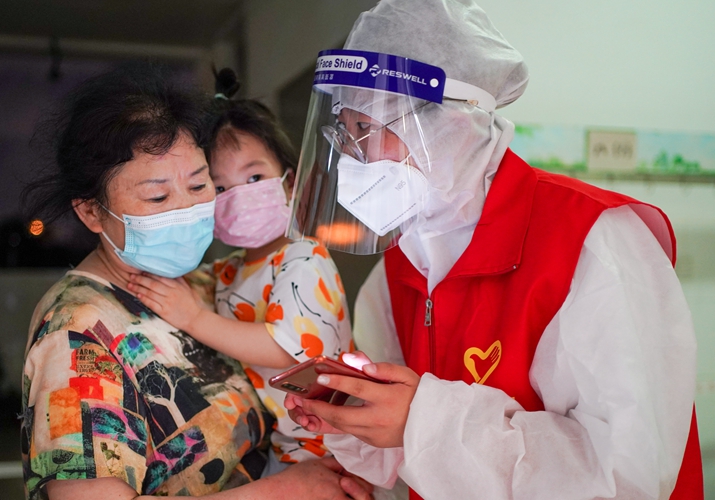Containment Through a Cultural Lens

With all sectors of society fully understanding the gravitas of the situation, the various policies and measures to defeat the virus could be launched and promoted quickly and efficiently.
While many countries around the world have struggled to contain and overcome COVID-19, often relying on the vaccines to come to their aid like magic bullets, several have demonstrated certain special, more befitting capacities for taking on the challenge and moving forward. In China, one such example, the interplay of governance capacity and cultural roots has proved conducive to fighting the pandemic and played a decisive role in its success.
Core values
China has grown into a modern and scientifically oriented country, but traditional Chinese culture, including Confucianism, continues to influence, positively, both the governed and those who govern them. These influences emphasize both the individual and collective responsibility for wellbeing, social stability and patriotism.
According to concepts of Confucianism, a system of thought developed from the teachings of ancient philosopher Confucius who lived some 2,500 years ago, good faith is regarded as an important manifestation of benevolence and a necessary virtue for a sage. Anyone who is truthful in their words and behavior can gain the trust of others. If those in power commit themselves to taking credible steps to advance public interests, the people will trust them.
These principles become most evident when the country is in crisis. Chinese trust their government and are willing to follow COVID-19 containment rules to help their countrymen and their nation at large to tide over the difficulties. In return, they expect security, solidarity and social unity. The people’s active response to the government’s call and their cooperation have resulted in all of society participating in the anti-COVID-19 efforts spearheaded by government organs and social organizations.
The people of China value a deep commitment to society and forge social bonds that outweigh the concept of individualism. The sense of national identity and cohesion makes them willing to stick together in weal and woe, share their burdens, and, in the most recent instance, contain COVID-19 via concerted efforts. Their self-discipline and willingness to sacrifice their own gains or comforts for the greater good have facilitated the Central Government’s implementation of prevention and control measures.
As the government implemented lockdowns on severely affected areas as well as strict community management, quarantine and social distancing requirements, support from members of society laid the foundations for effectively and rapidly reducing infections.
The heroic deeds of many an individual touched hearts across the nation. Most notably, medical workers risked their own lives, in a race against time to try and save every patient. Some of them lost their lives in the line of duty. Zhang Dingyu, who headed a hospital in Wuhan, Hubei Province, where the pandemic was first reported, worked on the front line despite having amyotrophic lateral sclerosis. With this disease, he may progressively lose muscle strength and become paralyzed. Zhang, a member of the Communist Party of China (CPC), was later given the national honorary title, the People’s Hero, for his contributions to the fight.
In addition to traditional culture, a revolutionary culture, fashioned by the CPC during the Chinese revolution, has organically morphed into the modern Chinese moral compass. This culture advocates loyalty to the country, the confidence to overcome difficulties, self-sacrifice, and discipline. For instance, the founding spirit of the CPC, as explained by Xi Jinping, General Secretary of the CPC Central Committee, at a ceremony marking the Party’s centenary on July 1, consists of the following principles: upholding truth and ideals, staying true to the Party’s original aspiration and founding mission, fighting bravely without fear of sacrifice, and remaining loyal to the Party and faithful to the people.
The revolutionary ethos provides a source of inspiration to the Chinese people. For instance, the “top-down” system based on this idea plays a key role in the fight against COVID-19, empowering the Central Government to dispatch national resources to battle the pandemic and maintain social stability.
This governing mantra can give full play to its unique advantages in pooling resources to handle major, difficult, and urgent matters. The fight against COVID-19 has demonstrated the power of China’s governance arrangements in guaranteeing the effective management of a social crisis and promoting the return to normalcy across society.

People-centered
China’s state governance centers on the people, giving top priority to protecting their rights and interests.” The Party has always represented the fundamental interests of all Chinese people,” Xi said in his July 1 speech. “We will develop whole-process people’s democracy, safeguard social fairness and justice, and resolve the imbalances and inadequacies in development and the most pressing difficulties and problems that are of great concern to the people.”
The CPC’s people-oriented concept originated long ago in the Shang (about 1600-1046 B.C.) and Zhou (about 1046-256 B.C.) dynasties. As early as these dynastic eras, political culture began to transform itself from divine-given to human-oriented. The ideas that the people are the root of a country and “when the root is firm, the country will be tranquil” have been around for thousands of years. Over time, they have become the fundamental principles of China’s governance.
Visionary Chinese statesmen, past and present, have regarded the “will of the people” to be the most important factor in leading the nation. Having or losing the support of the people determines the rise or fall of a country and its political power, as well as the development of state affairs.
In traditional Chinese culture, a country is the extension of the family—a country is a “big” family, whereas an individual household is a “small” country. This belief has benefited society during the COVID-19 pandemic, ensuring the Chinese Government and the people are in step with each other. With all sectors of society fully understanding the gravitas of the situation, the various policies and measures to defeat the virus could be launched and promoted quickly and efficiently.
As the ancient Chinese proverb goes, the people are like grains of sand. And in times of adversity, these grains assemble to build a tower.
Li Qingyun is an associate professor with the Shanghai Academy of Social Sciences.
 Facebook
Facebook
 Twitter
Twitter
 Linkedin
Linkedin
 Google +
Google +










